


Have you ever noticed water flowing from the sink into the washing machine when you’re doing a load of laundry? This can be quite confusing and frustrating, especially if you’re not sure why it’s happening. In order to understand this phenomenon, it’s important to have a basic understanding of how plumbing systems work and the role of a washing machine in your home.
First and foremost, it’s important to note that your washing machine is connected to your home’s plumbing system. This means that when you turn on the water supply to your washing machine, it draws water from the existing plumbing pipes in your home. This water is then used to fill the washing machine drum during the wash cycle.
The reason why water can flow from the sink into the washing machine is because of a shared drainage system. When the washing machine drains water after a wash cycle, it releases the used water through a drain hose. This drain hose is connected to a drain pipe that is shared with other fixtures in your home, such as your sink.
So, if you notice water flowing from the sink into the washing machine, it could be due to a couple of reasons. One possible reason is a clog or blockage in the shared drainage system. If there is a blockage in the drain pipe, the water from the sink may not be able to flow freely and can even be pushed back into the washing machine.
Another possible reason is a faulty or incorrectly installed plumbing system. If the plumbing system in your home is not properly designed or installed, it can lead to issues such as backflow, where water from one fixture flows into another. In this case, water from the sink may be flowing into the washing machine due to a plumbing problem.
Overall, understanding the reason behind water flowing from the sink into the washing machine requires knowledge of how plumbing systems work and the shared drainage system in your home. If you’re experiencing this issue, it’s best to consult a professional plumber who can diagnose and fix the problem to ensure your plumbing system functions properly.
What Causes Water Flowing from the Sink into the Washing Machine?
It can be a frustrating experience to find water flowing from the sink into the washing machine. Understanding the cause of this issue can help you prevent it from happening again in the future. There can be several reasons why this occurs:
1. Faulty plumbing connections:
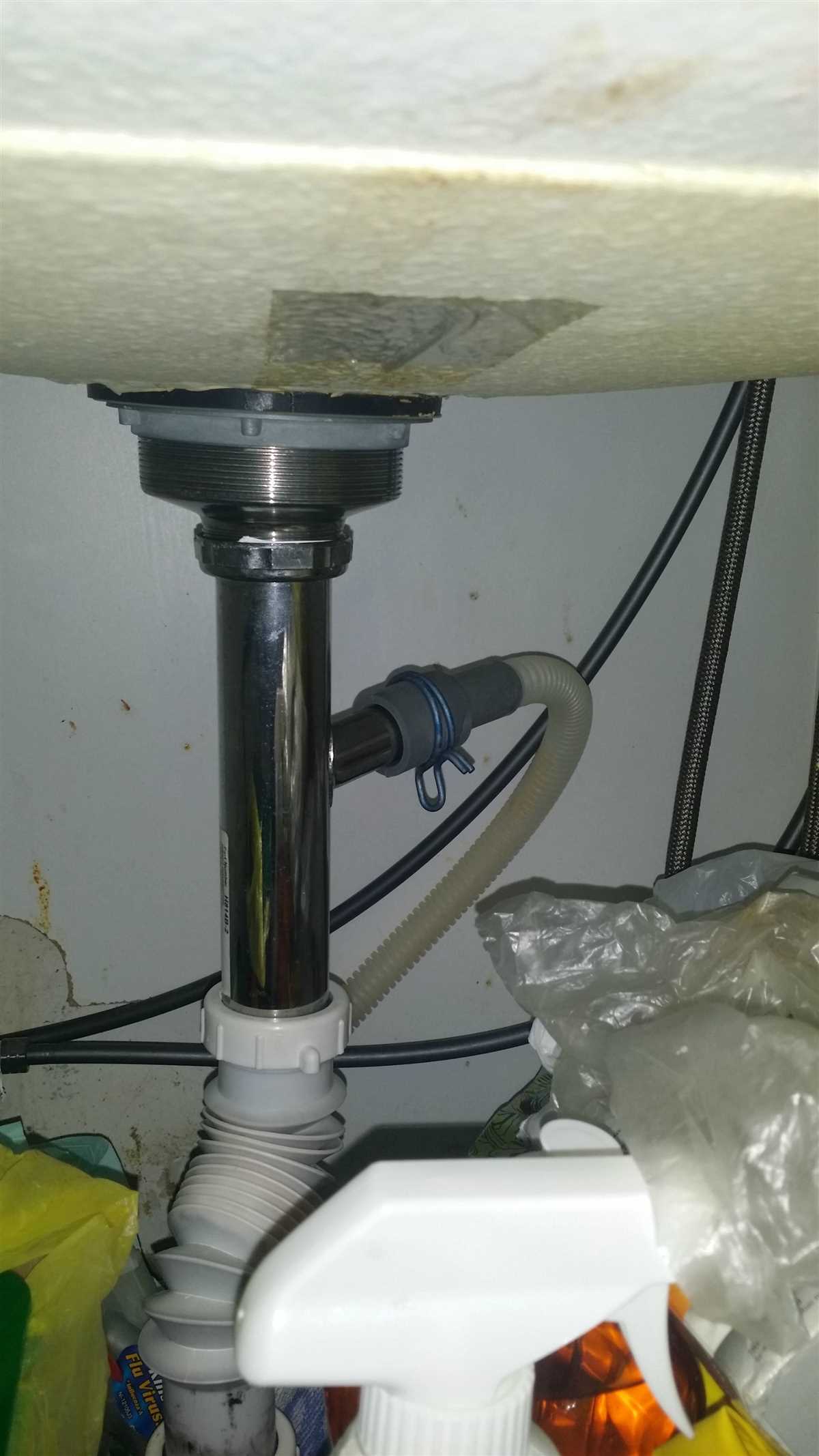
A common cause of water flowing from the sink into the washing machine is faulty plumbing connections. This can happen if the pipes are not properly connected, resulting in water from the sink backing up into the washing machine. It is important to ensure that all plumbing connections are tight and secure.
2. Clogged drain pipe:
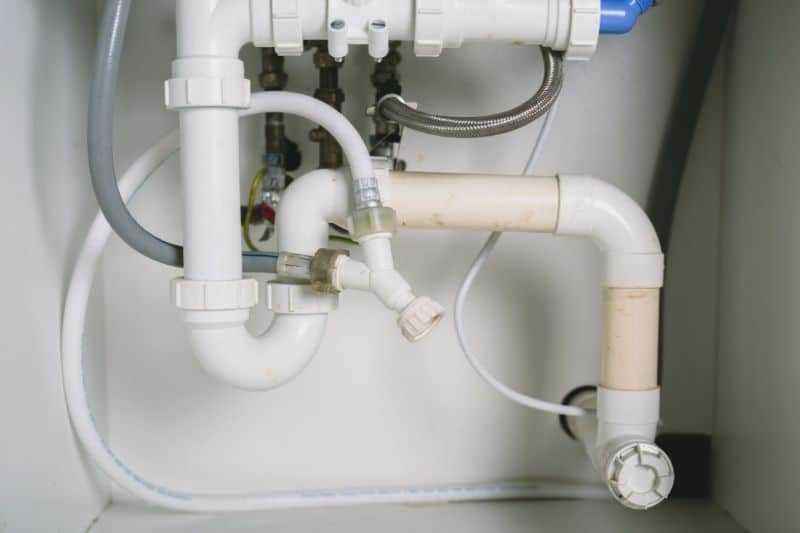
A clogged drain pipe can also cause water to flow from the sink into the washing machine. If the drain pipe is blocked, water will have difficulty passing through and may find its way into the washing machine instead. Regularly cleaning and maintaining the drain pipe can help prevent this issue.
3. Faulty check valve:
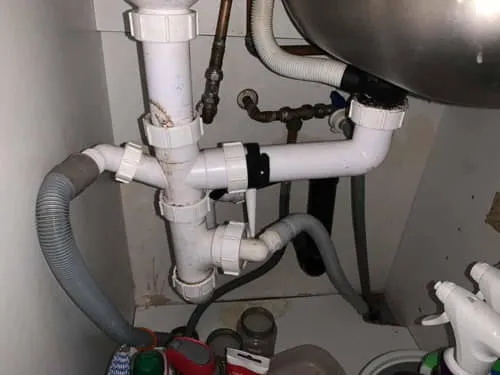
A faulty check valve can also be responsible for water flowing from the sink into the washing machine. The check valve is designed to prevent water from flowing in the reverse direction, but if it is faulty or damaged, it may fail to do so. Replacing the check valve can solve this problem.
4. High water pressure:
In some cases, high water pressure can cause water to flow from the sink into the washing machine. When the water pressure is too high, it can push water from the sink back into the washing machine. Installing a pressure regulator can help reduce the water pressure and prevent this from happening.
5. Improper installation of washing machine:
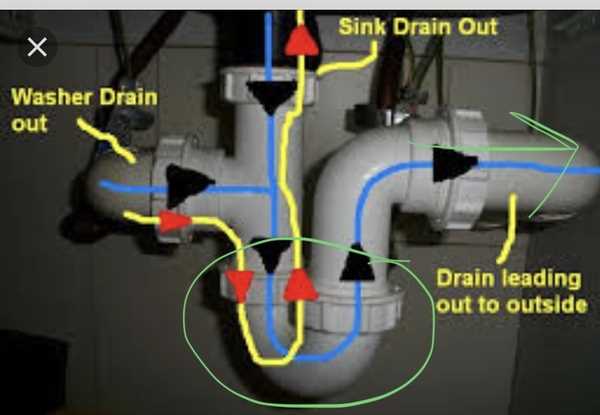
If the washing machine is not properly installed, it can lead to water flowing from the sink into the machine. Ensure that the machine is level and all connections are secure. Improper installation can result in water leakage and other issues.
By identifying and addressing the cause of water flowing from the sink into the washing machine, you can avoid further damage and inconvenience. Regular maintenance and proper installation can go a long way in preventing this issue from occurring in the future.
Problem with the Sink Drainage System
The sink drainage system can experience several problems that may lead to water flowing from the sink into the washing machine:
- 1. Clogged Drain Pipe: One common issue is a clogged drain pipe, which can prevent water from flowing properly. This can be caused by various factors such as food particles, grease buildup, or foreign objects.
- 2. Improper Installation: If the sink drainage system was not installed correctly, it may not have been aligned properly with the washing machine drain pipe. This misalignment can cause water to flow from the sink into the washing machine.
- 3. Faulty Sink Trap: The sink trap is designed to prevent the unpleasant odors from the sewer system from entering your home. If the trap is damaged or not functioning correctly, it may allow water to flow backward into the washing machine.
- 4. Ventilation Issues: Proper ventilation is crucial for maintaining a healthy drainage system. If the sink drainage system lacks ventilation or if the vent is blocked, it can cause water to flow in unintended directions, including into the washing machine.
- 5. Plumbing System Blockages: Blockages in the main plumbing system can also affect the sink drainage system. If there is a blockage downstream, it can create back pressure and force water from the sink into the washing machine.
If you are experiencing water flowing from the sink into the washing machine, it is essential to identify and address the underlying problem. Consulting a professional plumber can help diagnose and resolve any issues with your sink drainage system.
Washing Machine Drainage Issues
When water from the sink flows into the washing machine, it can be a sign of drainage issues. This can cause inconvenience and potential damage to both the sink and the washing machine. Understanding the underlying reasons for this problem can help in finding the right solutions.
1. Clogged Drain
A common cause of sink water flowing into the washing machine is a clogged drain. Over time, debris, hair, soap scum, and other particles can accumulate in the drainpipe, causing a blockage. This blockage prevents water from flowing out of the sink efficiently and diverts it into the washing machine instead.
Solution:
To resolve this issue, try using a drain cleaner or a plunger to clear the clog. If the clog persists, you may need to remove the trap under the sink and manually remove the debris. Regularly cleaning the drain can help prevent future clogs.
2. Improper Drain Hose Placement
If the drain hose of the washing machine is not properly positioned, it can cause water to flow into the sink. The drain hose should ideally be higher than the water level in the sink to prevent this from happening.
Solution:
Check the positioning of the drain hose. Ensure that it is properly secured and elevated above the water level in the sink. You can use a zip tie or a clip to secure the hose to a higher point to prevent water backflow.
3. Malfunctioning Check Valve
A check valve is a mechanism that regulates the flow of water. If the check valve in the washing machine is malfunctioning, it may allow water to flow in the wrong direction, causing it to backflow into the sink.
Solution:
If you suspect a malfunctioning check valve, it is best to call a professional plumber or contact the manufacturer of the washing machine for further assistance. They can diagnose the issue and provide the necessary repairs or replacements.
4. Plumbing Venting Issues
Inadequate or blocked plumbing vents can also contribute to water flowing from the sink into the washing machine. Plumbing vents facilitate proper drainage by allowing air to enter the pipes, preventing a vacuum effect that can lead to backflow.
Solution:
If you suspect venting issues, it is best to consult a professional plumber. They can inspect the plumbing system and identify any blockages or ventilation problems that may be causing the drainage issues. They can then provide the appropriate solutions, such as cleaning the vents or installing additional venting systems.
By addressing these common issues, you can prevent water from flowing into the washing machine when using the sink. Regular maintenance and proper troubleshooting can help ensure smooth drainage and prevent potential damage to your appliances and plumbing system.
Possible Interconnected Pipes
One possible reason for water flowing from the sink into the washing machine is interconnected pipes. Interconnected pipes occur when the drainage pipe from the sink and the drainage pipe from the washing machine are connected together. This can happen due to improper installation or a plumbing error.
Causes of Interconnected Pipes:
- Improper Installation: If the plumber incorrectly connects the drainage pipes, there is a chance that the pipes from the sink and washing machine may become interconnected. This can lead to water flowing from the sink into the washing machine and vice versa.
- Plumbing Error: Sometimes, even with proper installation, a plumbing error may occur, causing the pipes to become interconnected. This could be due to a mistake made during repairs or renovations.
Consequences of Interconnected Pipes:
- Water Backflow: When the pipes are interconnected, water from one fixture can flow into another. In this case, water from the sink can flow into the washing machine, leading to potential damage and interfering with the normal functioning of both appliances.
- Contamination: If sewage water from one appliance enters another, it can contaminate the water and cause a potential health hazard. This is especially concerning when it comes to interconnected pipes between the sink and washing machine.
- Increased Water Usage: When there is a continuous flow of water between the sink and the washing machine, there is a higher water usage, leading to increased water bills.
Solutions for Interconnected Pipes:
To resolve the issue of interconnected pipes, it is recommended to consult a professional plumber. They can inspect the plumbing system, identify the issue, and provide appropriate solutions. Possible solutions may include:
- Reconfiguring the Pipes: The plumber may need to reconfigure the layout of the drainage pipes to separate the sink and washing machine connections, ensuring that they are not interconnected.
- Installing Check Valves: Check valves can be installed on the drainage pipes to prevent water from flowing back into connected fixtures. These valves allow water to flow in one direction but prevent backflow.
- Proper Installation: Ensuring that the plumbing system is installed correctly, with separate pipes for each fixture, can help prevent interconnected pipes in the future.
Backflow Prevention Measures
Backflow prevention measures are essential to ensure that water flows in the desired direction and prevent any contamination or cross-connections. Various devices and methods can be employed to prevent backflow, including:
1. Air Gap
An air gap is a physical space between the water outlet and the receiving container. It allows air to enter the system, preventing water from flowing back into the supply lines. This method is commonly used in dishwashers and some washing machines.
2. Check Valves
Check valves, also known as non-return valves, are mechanical devices that allow water to flow in one direction only. When water tries to flow back, the valve closes, preventing backflow. Check valves can be installed at the water supply line of appliances to prevent contamination.
3. Reduced Pressure Zone (RPZ) Valve
An RPZ valve is a more advanced backflow prevention device commonly used in commercial and industrial settings. It creates a barrier between the supply and the receiving container, ensuring water only flows in the desired direction.
4. Hose Connection Vacuum Breaker (HCVB)
HCVBs are commonly used on outdoor faucets or other hose connections. They prevent backflow by creating an air gap when the water flow is turned off. This device ensures that any potential contaminants cannot reach the water supply.
5. Regular Maintenance
Maintaining the plumbing system and backflow prevention devices is crucial to ensure their proper functioning. Regular inspections and tests should be conducted by professionals to identify any potential issues and ensure the effectiveness of the backflow prevention measures.
By implementing these backflow prevention measures, it is possible to prevent the flow of water from the sink into the washing machine, reducing the risk of contamination and ensuring the safe and efficient operation of both appliances.
Seeking Professional Help for Resolving the Issue
If you have tried all the basic troubleshooting steps and the issue of water flowing from the sink into the washing machine persists, it may be time to seek professional help. Here are some reasons why contacting a professional plumber or appliance repair technician can be beneficial:
Expertise and Experience
Professional plumbers and appliance repair technicians have the knowledge and experience to diagnose and resolve complex plumbing issues. They can accurately identify the source of the problem and provide effective solutions.
Specialized Tools and Equipment
Professionals have access to specialized tools and equipment that are necessary for troubleshooting and repairing plumbing and appliance issues. They use advanced techniques and instruments to ensure a thorough and precise diagnosis.
Time and Cost Savings
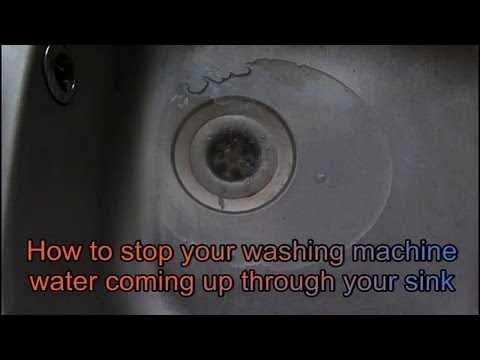
Hiring a professional can save you time and money in the long run. Attempting to fix the issue yourself without the proper knowledge or tools can lead to further damage and costly repairs. Professionals can quickly and efficiently resolve the problem, minimizing any potential damage.
Guaranteed Workmanship
When you hire a professional, you can expect quality workmanship and a guarantee on the repair. If the issue persists or reoccurs, they will usually address it without any additional charges.
Advice and Recommendations
Professional plumbers and appliance repair technicians can provide valuable advice and recommendations on how to prevent future issues. They can suggest maintenance tips and inform you about any potential problems to watch out for.
Remember, plumbing and appliance repairs can be complex, and attempting to resolve them yourself can lead to more significant issues. Seeking professional help is a wise decision that ensures the problem is fixed efficiently and correctly. Don’t hesitate to contact a reputable plumber or appliance repair technician to resolve the issue of water flowing from your sink into the washing machine.
FAQ
Why does water flow from the sink into the washing machine?
Water flows from the sink into the washing machine because of a common plumbing issue called a drain clog. This occurs when something gets lodged in the drainpipe, preventing water from flowing freely. As a result, water may start to back up and flow from one plumbing fixture to another.
What causes a drain clog?
A drain clog can be caused by a variety of factors. Common causes include the buildup of hair, soap scum, food particles, or other debris in the drainpipe. Additionally, a drain clog may also occur if there is a problem with the main sewer line, such as tree root intrusion or a damaged pipe.
How can I fix a drain clog?
There are several methods you can try to fix a drain clog. First, you can try using a plunger to create suction and dislodge the clog. If that doesn’t work, you can try using a drain snake or auger to physically remove the clog. Another option is to use a chemical drain cleaner, although this should be done with caution as it can be harmful to the pipes and the environment. If all else fails, it may be necessary to call a professional plumber to diagnose and fix the issue.
How can I prevent water from flowing from the sink into the washing machine?
To prevent water from flowing from the sink into the washing machine, it is important to take preventative measures. Regularly cleaning the drainpipes using a mixture of vinegar and baking soda can help remove any buildup and prevent clogs. Avoid disposing of large quantities of food scraps or grease down the sink, as these can contribute to clogs. Additionally, using drain guards or strainers in the sink can help catch hair and debris before they enter the drainpipe and cause a clog.












